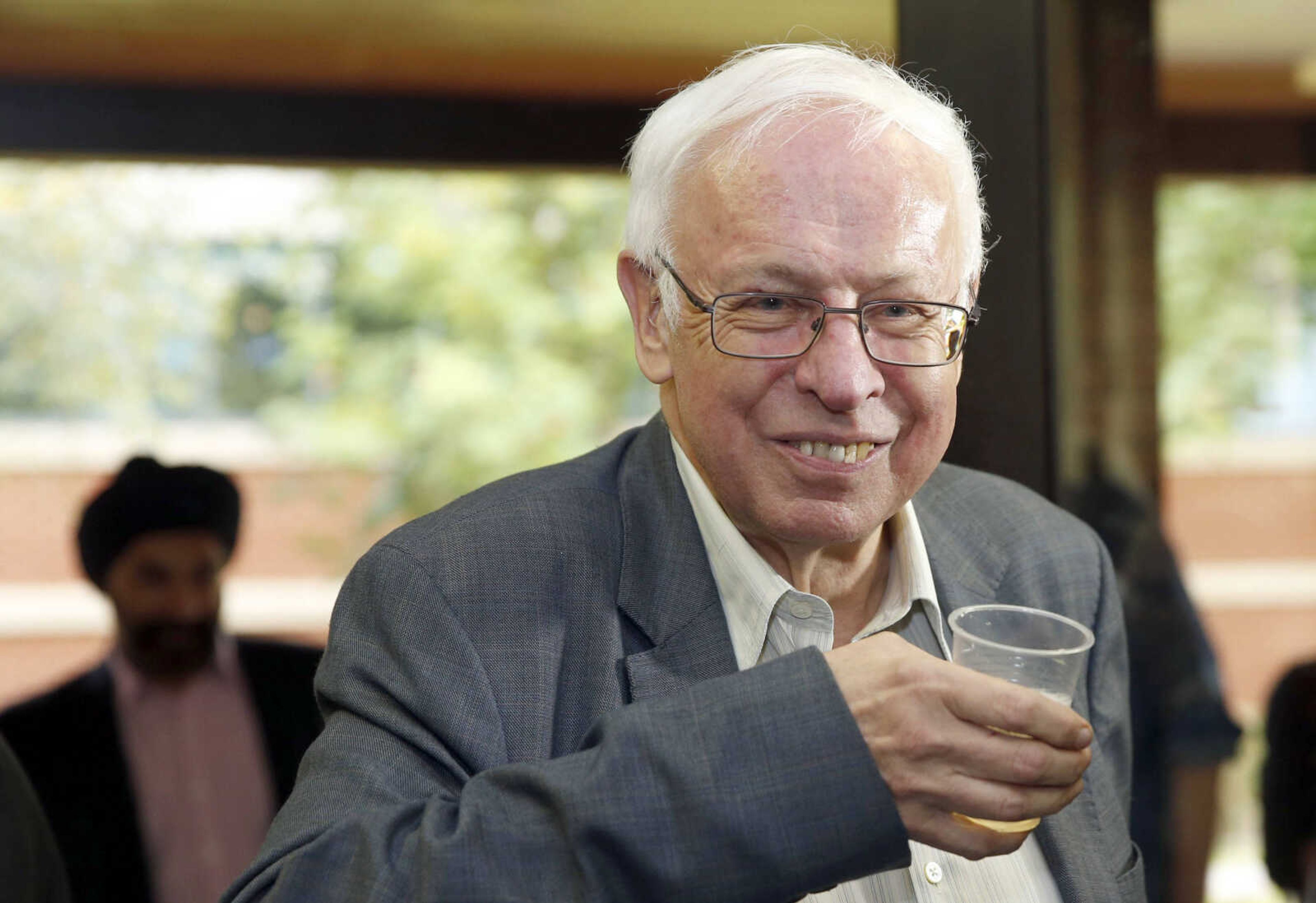Trio wins Nobel Prize for mapping how cells fix DNA damage
STOCKHOLM -- Tomas Lindahl was eating his breakfast in England on Wednesday when the call came -- ostensibly, from the Royal Swedish Academy of Sciences. It occurred to him that this might be a hoax, but then the caller started speaking Swedish. It was no joke: Lindahl and two others had won the Nobel Prize in chemistry for pioneering studies into the way our bodies repair damage to DNA...
STOCKHOLM -- Tomas Lindahl was eating his breakfast in England on Wednesday when the call came -- ostensibly, from the Royal Swedish Academy of Sciences. It occurred to him that this might be a hoax, but then the caller started speaking Swedish.
It was no joke: Lindahl and two others had won the Nobel Prize in chemistry for pioneering studies into the way our bodies repair damage to DNA.
"Their work has provided fundamental knowledge of how a living cell functions" and is used in developing new cancer treatments, the academy said.
Lindahl, who is Swedish, was honored along with American Paul Modrich and U.S.-Turkish scientist Aziz Sancar for research done in the 1970s and '80s.
The men "really laid the foundations for the whole field" of DNA repair, said Alan Ashworth, president of the cancer center at the University of California, San Francisco. "These really are the fathers of the field."
Lindahl, 77, is an emeritus group leader at the Francis Crick Institute and Emeritus director of Cancer Research UK at Clare Hall Laboratory in Britain.
Modrich, 69, is an investigator at Howard Hughes Medical Institute and professor at Duke University School of Medicine in Durham, North Carolina.
Sancar, also 69, is a professor at the University of North Carolina School of Medicine in Chapel Hill, North Carolina. He is the second Turk to win a Nobel Prize, after novelist Orhan Pamuk was awarded the literature prize in 2006.
Sancar comes from a family of farmers with eight children; neither parent received an education but all the children are university graduates, Sancar told Haber Turk television.
He told The Associated Press that he thought the prize would be very important for Turkey.
"Young Turkish scientists need a role model showing that they can accomplish important contributions to science," he said.
Lindahl told reporters at his laboratory near London that the prize is "a great honor and a fantastic way of winding up my career."
Modrich, on vacation in New Hampshire, said he found out about his prize when a colleague emailed congratulations.
"I never quite put our work in this class, actually," Modrich said. "It's nice to know other people put it in that class."
The prize is worth 8 million Swedish kronor (about $960,000).
Working separately, the laureates broke new ground by mapping and explaining several of the ways a cell repairs its DNA, the molecule that contains our genes. DNA sustains damage in multiple ways, such as when it is copied as cells divide or in response to chemicals or ultraviolet rays from the sun.
DNA was thought to be a stable until the 1970s, when Lindahl showed that it gets damaged so often that it seemed human life would be impossible. He realized that there must a repair mechanism, opening a new field of research, the academy said.
Working at Yale University, Sancar mapped the mechanism that cells use to repair UV-damaged DNA. Modrich showed how the cell corrects errors when DNA is replicated during cell division.
Some research into developing new cancer drugs is based on the idea of sabotaging the DNA repair that keeps cancer cells alive. One drug designed to do that is already used to treat advanced ovarian cancer, and many others are being studied, Ashworth said.
Rodney Rothstein, who studies DNA repair at the Columbia University Medical Center in New York, said the Nobel award shows the importance of basic research.
The award will be handed out along with the other Nobel Prizes on Dec. 10, the anniversary of prize founder Alfred Nobel's death in 1896.
This year's medicine prize went to three scientists from Japan, the U.S. and China who discovered drugs to fight malaria and other tropical diseases. Japanese and Canadian scientists won the physics prize for discovering that tiny particles called neutrinos have mass.
The Nobel announcements continue with literature on Thursday, the Nobel Peace Prize on Friday and the economics award on Monday.
Malcolm Ritter reported from New York. AP journalists David Keyton and Malin Rising in Stockholm, Danica Kirka in London, Jack Jones in Columbia, South Carolina, and Jonathan Drew in Durham, North Carolina, contributed to this report.
Online:
Nobel website: http://www.nobelprize.org
Connect with the Southeast Missourian Newsroom:
For corrections to this story or other insights for the editor, click here. To submit a letter to the editor, click here. To learn about the Southeast Missourian’s AI Policy, click here.









